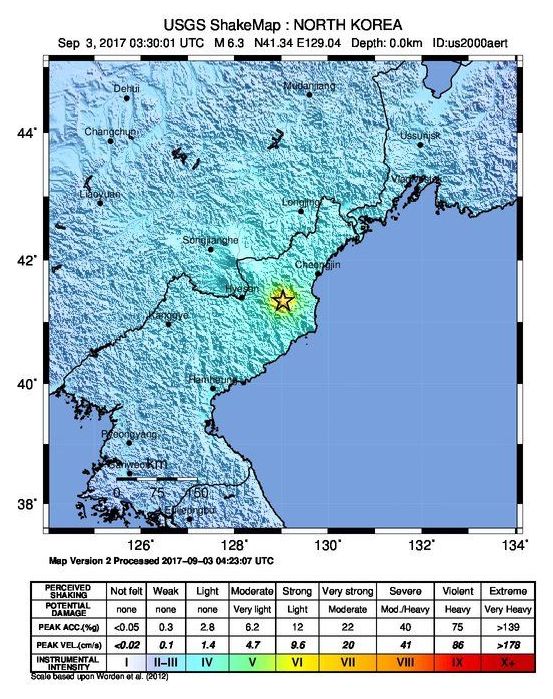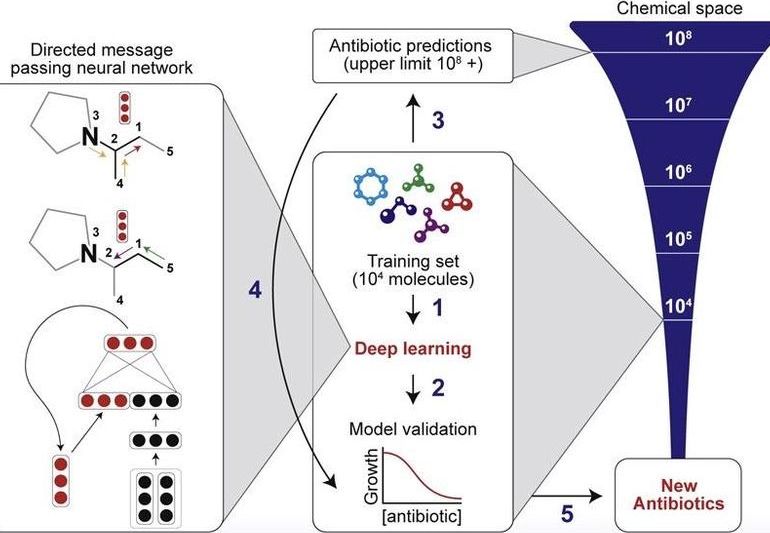North Korea conducted its sixth nuclear test on 3 September 2017, stating it had tested a thermonuclear weapon (hydrogen bomb).[6].


North Korea conducted its sixth nuclear test on 3 September 2017, stating it had tested a thermonuclear weapon (hydrogen bomb).[6].

And others in the research community, like this nuclear physicist at the Large Hadron Collider, are realizing how close they came to catching the virus.
The first COVID-19 case may have started as early as November 17. A good chunk of my reararch group, and our particular slice of the nuclear physics community, were literally in Wuhan until just a week before this. To think what could have been… https://www.scmp.com/news/china/society/article/3074991/coro…raced-back
— Dennis V. Perepelitsa (@dvperepelitsa) March 13, 2020

Coronavirus Research : A recent study published on an open platform but has yet to be peer reviewed caught our eyes as it was strangely conducted by the prestigious Spiez Laboratory In Switzerland by a team of leading virologists and microbiologists, but what intrigued me was that why would a prestigious research centre like the Spiez laboratory that had enormous funds and had some of the leading specialist post a ‘half-baked’ research on an open platform?

Echinacea Flowers



Turkey’s first electromagnetic anti-drone systems manufacturer Harp Arge (R&D) on Sunday unveiled its 2.5-kilogram (5.5-pound) anti-drone weapon produced with the latest antenna technology, allowing for reduced size and weight.
The technology firm, which has been working to improve capabilities of national drone systems, introduced its newest product, ES-60 Electromagnetic Anti Drone Gun, designed to inflict high-speed electromagnetic interference to disrupt communications between drones and their control units and cause enemy devices to malfunction.
The Harp Arge said the anti-drone gun has a weight of 2.5 kilograms and is capable of combating rogue drones within a 3-kilometer (1.86-mile) range. The company said the new antenna technology installed enabled the company to reduce the size and weight of the weapon to an impressive extent. The firm added that the jamming weapon is produced using more than 70% of locally sourced content and would only be provided to government agencies as per weapons regulations.

Although the majority of the synthetic biology market is concentrated in North America and Europe, the synthetic biology landscape is growing worldwide — with some of the fastest growing areas developing outside of the United States. There are several hotspots — formed when innovation at one company or university lab sparks new spinoffs — that synthetic biology followers should pay close attention to in the coming months and years.
The United Kingdom and Ireland
Among non-US hotspots for synthetic biology, the United Kingdom stands out. While most US universities still lack programs in synthetic biology, they are not hard to come by in the UK. Imperial College London, the University of Warwick, Cambridge University, and the University of Edinburgh are all particularly noteworthy for the depth and breadth of synthetic biology research. And, OpenPlant, a joint initiative between the University of Cambridge, John Innes Centre, and the Earlham Institute, is advancing synthetic biology by engineering the next generation of DNA tools for “smart” crop breeding systems.

Scientists at MIT and Harvard’s Broad Institute and MIT’s CSAIL built a deep learning network that can acquire a broad representation of molecular structure and thereby discover novel antibiotics. The resulting compound, halicin, can destroy a pathogen for which no cure has existed, and it could even help in the fight against coronavirus.

Permanent magnets akin to those used on refrigerators could speed the development of fusion energy – the same energy produced by the sun and stars.
In principle, such magnets can greatly simplify the design and production of twisty fusion facilities called stellarators, according to scientists at the U.S. Department of Energy’s (DOE) Princeton Plasma Physics Laboratory (PPPL) and the Max Planck Institute for Plasma Physics in Greifswald, Germany. PPPL founder Lyman Spitzer Jr. invented the stellarator in the early 1950s.
Most stellarators use a set of complex twisted coils that spiral like stripes on a candy cane to produce magnetic fields that shape and control the plasma that fuels fusion reactions. Refrigerator-like permanent magnets could produce the hard part of these essential fields, the researchers say, allowing simple, non-twisted coils to produce the remaining part in place of the complex coils.

Kenyan ecologist Wangari Maathai — who on Friday became the first African woman to win the Nobel Peace Prize — on Saturday repeated her previous claims that HIV was “created by a scientist for biological warfare,” reports. In August, Kenya’s quoted Maathai as saying that HIV/AIDS was created by scientists “for the purpose of mass extermination,” according to. “We know that the developed nations are using biological warfare, leaving guns to primitive people. They have the resources to do this,” the quoted Maathai as saying during a workshop on Aug. 30 in the central Kenyan town of Nyeri, according to. “AIDS is not a curse from God to Africans or the black people. It is a tool to control them designed by some evil-minded scientists, but we may not know who particularly did,” she added, according to the, reports (, 10/9) Saturday, Maathai repeated her belief that HIV was deliberately “devised to destroy black people,” according to. She added that her comments published in the were “intended to promote an inquiring attitude” toward HIV/AIDS among Africans and “combat the fatalistic notion that it was a curse from God,” reports. “Would you solve the problem if you believed it was a curse from God?” Maathai asked, adding that she was “encouraging people to ask questions.” Although Maathai said she never indicated that a specific region or nation was responsible for creating HIV/AIDS, she is “suspicious” about the “secrecy surrounding the origin of the virus,” according to. “Some people say it came from the monkeys, and I doubt it. … But I say it cannot be that only black people are cursed because we are dying more than any other people on this planet, and that’s a fact” (Kanina„ 10/9).
Reaction
Although the United States “congratulated” Maathai on Friday for winning the Nobel Prize, officials also “tempered [their] praise” about her claims that HIV/AIDS was created as a biological weapon, according to South Africa’s. “She’s had many long years of environmental activism,” Department of State spokesperson Richard Boucher said, adding, “We’re delighted to see that she’s the first African woman to have been selected for this unique honor.” However, an unnamed State Department senior official said that the department “vehemently” objected to Maathai’s comments concerning the origin of HIV, the reports. “She said HIV/AIDS was invented as a bioweapon in some laboratory in the West,” the official said, adding, “We don’t agree with that” (, 10/9).